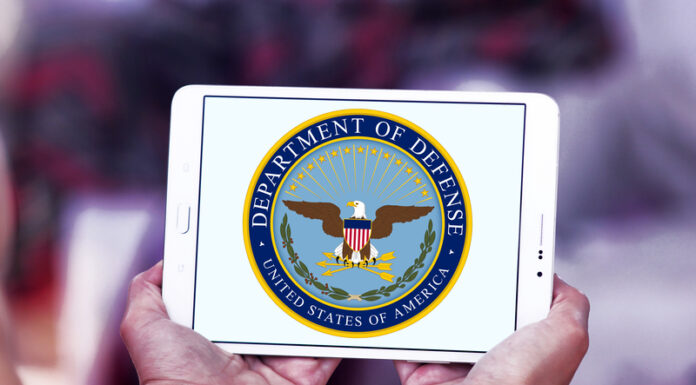A national security controversy has erupted in Washington after Defense Secretary Pete Hegseth allegedly shared sensitive military information in an unsecured group chat, prompting a forceful response from an Illinois senator and combat veteran.
Sen. Tammy Duckworth (D-Ill.) has called for Hegseth’s immediate resignation, using particularly blunt language to express her outrage over what she described as a dangerous breach of classified information.
“Pete Hegseth is a f”ing liar. This is so clearly classified info he recklessly leaked that could’ve gotten our pilots killed,” Duckworth said in an official statement released by her office. “He needs to resign in disgrace immediately.”
The controversy stems from text messages sent by Hegseth in a group chat on the encrypted messaging app Signal. The messages, which reportedly contained details about planned U.S. military strikes against Houthi targets in Yemen in early March, were inadvertently shared with Jeffrey Goldberg, editor-in-chief of The Atlantic, who was mistakenly added to the conversation.
According to Military Times, the messages included specific information about the timing and sequencing of airstrikes, as well as details about which weapons systems would be deployed. Former defense officials have argued that such operational information would typically be considered highly classified.
Duckworth, who serves on the Senate Armed Services Committee and the Senate Foreign Relations Committee, has emphasized that the leak put American service members at risk. As a former Black Hawk helicopter pilot who lost both legs during combat operations in Iraq, the senator brings military expertise to her criticism.
When questioned about her strong language during a Fox News interview, Duckworth acknowledged that her military background may have influenced her word choice. She told host Bret Baier that she sometimes has “a potty mouth.”
Beyond her reaction, Duckworth has called for an independent investigation into all officials involved in the group chat, which reportedly included Vice President J.D. Vance, Secretary of State Marco Rubio, CIA Director John Ratcliffe, and Director of National Intelligence Tulsi Gabbard, among other senior national security officials.
Hegseth has denied any wrongdoing. In a statement reported by Fox News, he insisted that no classified information was shared in the Signal group chat. “Nobody’s texting war plans,” Hegseth said, describing his role as keeping the President’s national security team informed in real time.
The White House has stood by Hegseth, with President Trump refusing to fire any officials involved in what critics call “Signalgate.” National Security Adviser Mike Waltz has taken responsibility for inadvertently adding Goldberg to the chat.
Illinois Governor JB Pritzker has joined the criticism, expressing concern that sharing military plans through a messaging app compromised national security. He argued that if the information had fallen into the wrong hands, it could have endangered American military personnel.
The controversy has sparked bipartisan concern. Rep. Don Bacon (R-Neb.) has stated that the White House is “in denial” about the classified nature of the shared information, breaking with the administration’s position.
Sen. Roger Wicker (R-Miss.), who chairs the Senate Armed Services Committee, has announced plans to investigate the matter. This bipartisan scrutiny suggests the issue won’t be quickly dismissed.
Military experts and former defense officials have expressed alarm at what they view as a dangerous double standard. Many have pointed out that lower-ranking military personnel would likely face court-martial and potentially prison time for similar disclosures of operational details.
The watchdog group American Oversight has filed a lawsuit seeking to compel the Trump administration to preserve all messages from the Signal chat. Legal experts have suggested the leak could violate several laws, including the Espionage Act, the Federal Records Act, and the Presidential Records Act.
Despite the growing controversy, U.S. military operations against Houthi targets in Yemen have continued. However, the political and legal battle over the classified information leak shows no signs of abating as calls for accountability grow louder from both sides of the aisle.








